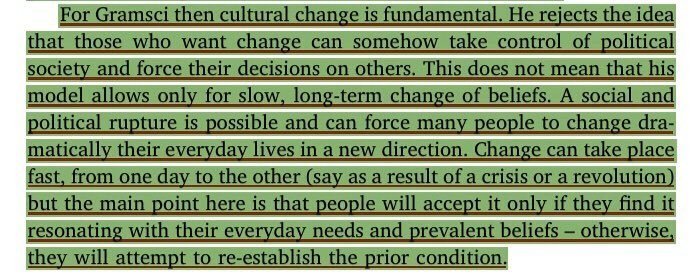A controversial —strong, but weakly held— opinion:
The established discourse that for centuries presented economic growth as a panacea (and, thus, ruled the world by that principle), has spurred a counter-movement that is becoming its exact reflection. https://www.opendemocracy.net/en/oureconomy/degrowth-new-roots-economy/">https://www.opendemocracy.net/en/oureco...
The established discourse that for centuries presented economic growth as a panacea (and, thus, ruled the world by that principle), has spurred a counter-movement that is becoming its exact reflection. https://www.opendemocracy.net/en/oureconomy/degrowth-new-roots-economy/">https://www.opendemocracy.net/en/oureco...
Degrowth presents economic growth as a stand-in for all evils (capitalism, neoliberalism, inequality, authoritarianism, ecological degradation, etc.) and, consequently, proposes an arguably idealist, unclear and implausible program of “degrowth” as a new panacea.
Idealist?
Becuase, arguably, it relies almost exclusively in an appeal to ideals and voluntary actions rather than a theory of change that takes into account how those voluntary actions are enabled and constrained by material conditions and mechanisms.
Becuase, arguably, it relies almost exclusively in an appeal to ideals and voluntary actions rather than a theory of change that takes into account how those voluntary actions are enabled and constrained by material conditions and mechanisms.
Unclear? Because:
1. Economic contraction is neither, in itself, a policy goal nor a theoretical necessity but rather an empirically expected secondary outcome.
2. Such contraction would not apply equally to all regions, all socio-economic classes, or all industries/activities.
1. Economic contraction is neither, in itself, a policy goal nor a theoretical necessity but rather an empirically expected secondary outcome.
2. Such contraction would not apply equally to all regions, all socio-economic classes, or all industries/activities.
So there is, potentially, as much “growth” as there is “degrowth” in the degrowth program, but a question remains: Who decides?
Implausible? Because the whole program depends on an as yet undertheorized large-scale, radical and fast cultural transformation of people’s values and “common sense”.
Source: Kallis et al, ‘Degrowth and the State’.
Source: Kallis et al, ‘Degrowth and the State’.
A transformation that, by the way, may be seen just as “utopian” as degrowth’s next best enemy—namely, “techno-fixes” — only in a socio-cultural form.
I realize that this rant is like a pseudo-theoretical #leeroyjenkins (and probably not a lot of people will care) but as I said these are “strong opinions, weakly held” so I’m open and actively looking for counter-arguments.
/END
/END

 Read on Twitter
Read on Twitter


